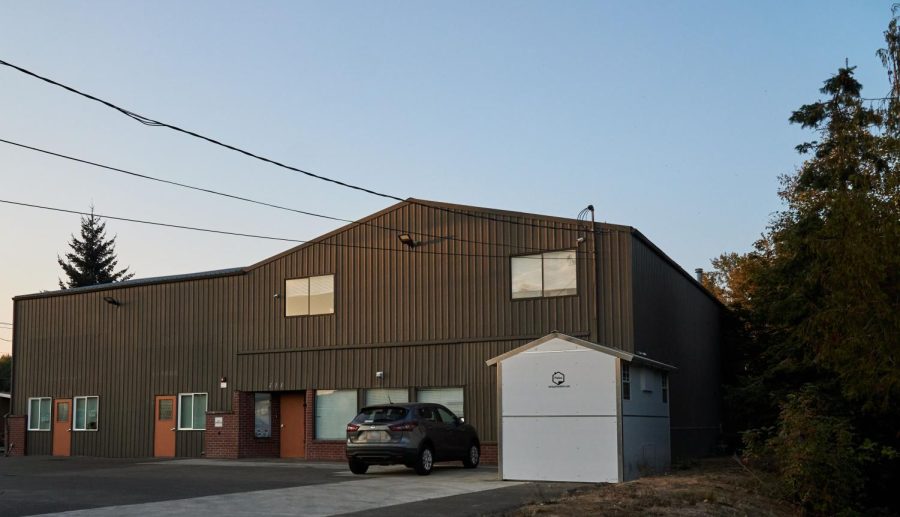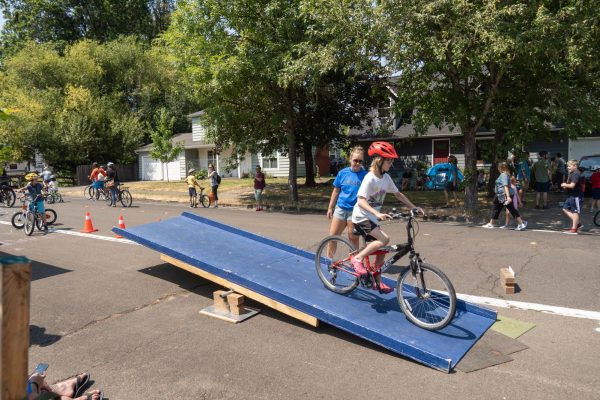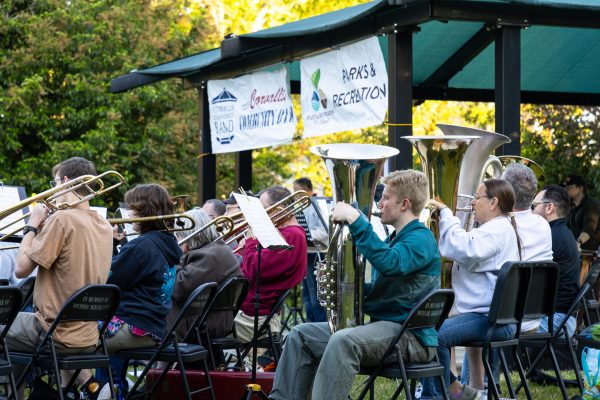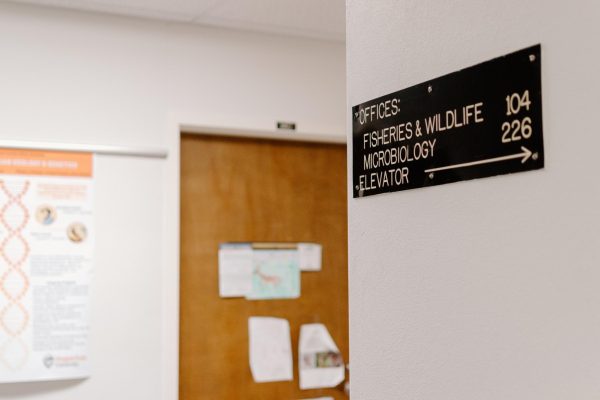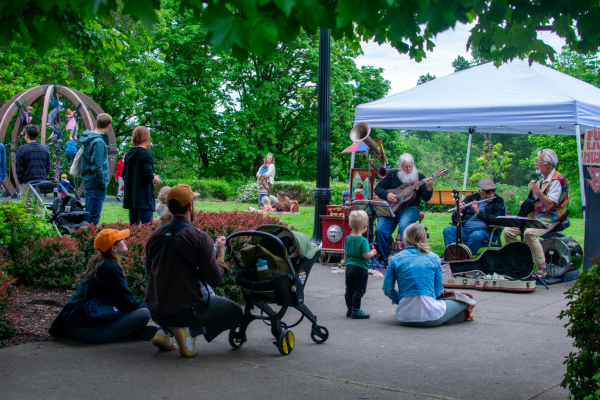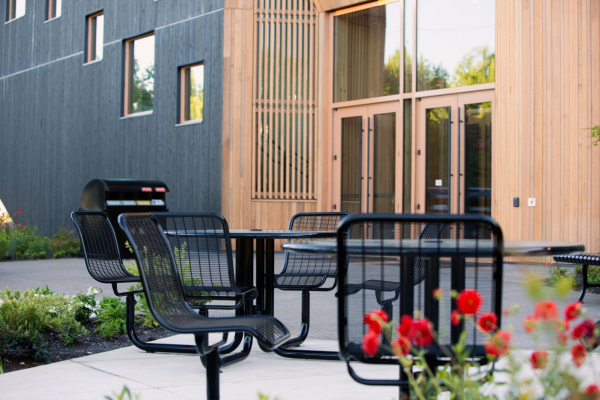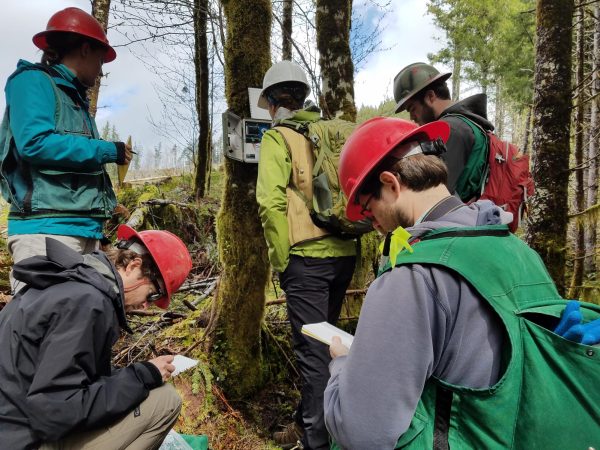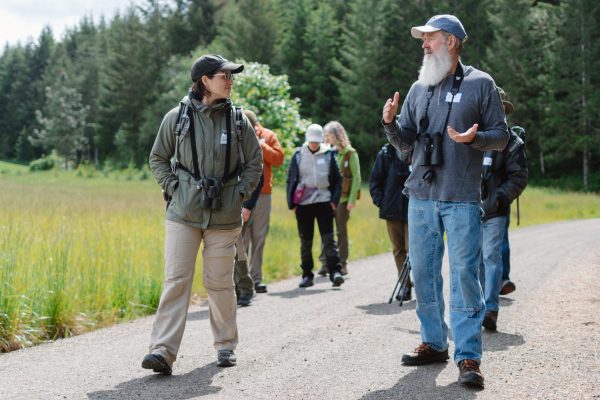Worker shortage effects compound with existing hardships for Corvallis housing programs
November 2, 2022
While the causes may be different, the problem remains the same for many industries across the U.S. — workers are needed but can’t be found.
In Corvallis, the worker shortage has already caused the Corvallis Transit System to completely shut down weekend service and cut a few routes from the schedule in mid-September.
For housing programs, such as Community Services Consortium, Unity Shelter and Jackson Street Youth Services, the problems aren’t as prevalent but no less important. These include the worker shortages as well as a variety of other problems unique to housing programs.
According to Housing Services Manager at Community Services Consortium Dina Eldridge, CSC has already hired more staff in the past few months, but recruiting is still difficult for them.
“[Recruitment time] hampers how fast we can serve people and how many people we can serve,” Eldridge said. “We’re doing our best, but it’s a tough climate out there for finding good employees.”
Despite not suffering from losing workers through poor working conditions like Amazon, CSC instead cannot find enough workers in a field that not many are qualified or interested in working in according to Eldridge.
“Social services are obviously in high demand these days, with all the economic impacts on people,” Eldridge said. “It’s a sector of employment that has a lot of openings, and I think sometimes we’re all trying to recruit for the same position.”
JSYS and Unity Shelter are both short on staff as well, with Executive Director of Unity Shelter Shawn Collins, stating that they are almost always a little lean on staff.
“Demand for shelter beds is high, especially at the women’s shelter, Room at the Inn, so we are changing the layout to allow increasing the number of available beds. This means more beds for people in need of shelter, but it also means more staff, food, laundry, etc — so we’re hoping to bring more volunteers back into our operations to help,” Collins said.
Outside of the worker shortages, according to Program Director at Jackson Street Youth Services Kendra Phillips-Neal, the effects of COVID-19 still linger for JSYS. The organization has seen mental health needs increase as well.
“COVID-19 has greatly impacted the youth and families we serve. There are higher rates of isolation, abuse, neglect and financial hardships,” Phillips-Neal said. “We expect numbers to increase over the next several years from the negative impacts COVID-19 has had.”
For Unity Shelter, which deals with people aged 18 or older, they are also concerned about COVID-19 with the expected spikes in both the fall and winter. However, according to Collins, Unity Shelter is well trained to limit the exposure to the virus.
“We have been very fortunate and able to have limited outbreaks in our facilities and have had great partnerships with folks like Benton County Health, Samaritan Health Services and Oregon Health Authority for vaccinations, PPE, and other support,” Collins said.
Another set of challenges that the housing programs face include the approaching winter and the problems that come with the season.
“There’s obviously a need for more attention to the weather, impacts on those we serve who are not sheltered, and keeping blankets, dry socks and other clothing, hand warmers etc on hand,” Collins said. “Wet weather is hard when you’re living outside, even if you can come in at night.”
In large part, according to Collins, the basics of helping the houseless are not tied to the seasons besides the extra attention to weather during the colder months. However, there are differences between the women’s shelter and the men’s shelter.
“There’s a higher percentage of guests at the women’s shelter who have been victims of domestic violence and may have significant PTSD or other issues related to past trauma,” Collins said.
These differences can create unique challenges, but for all of the programs at Unity Shelter, the impacts of trauma can be seen.
“We train staff in trauma informed care and other topics that can help to meet the needs of our guests – but it can be difficult work, and seeing people whose lives are made so much more difficult due to a lack of stable and affordable housing has an impact,” Collins said.
For JSYS, which serves people 10-24 years old, the problems they encounter are more centered around school life and family issues according to Phillips-Neal.
With Nov. 8 rapidly approaching, all three governor candidates include tackling the homeless issue on their lists of priorities. However, their methods do differ, and the organizations are not able to express their opinions on who they support.
“Because we’re a public agency, we can’t express opinions on candidates or legislation or ballot measures or anything like that. So, you know, we are always just advocates for people who are living in poverty and who need help,” Eldridge said.












































































































